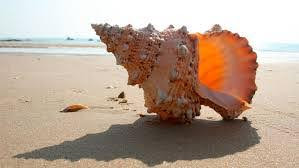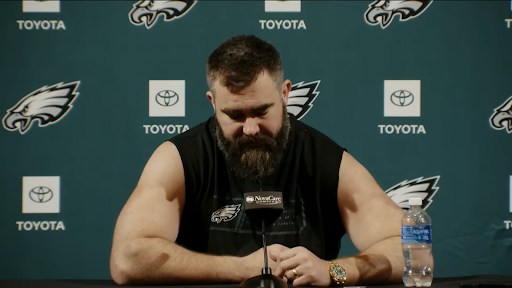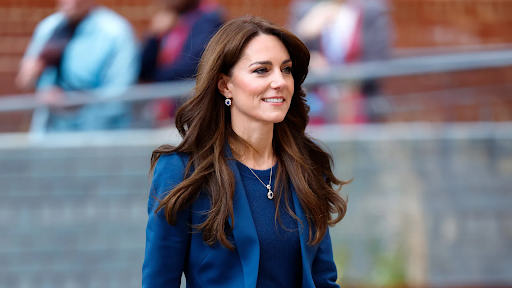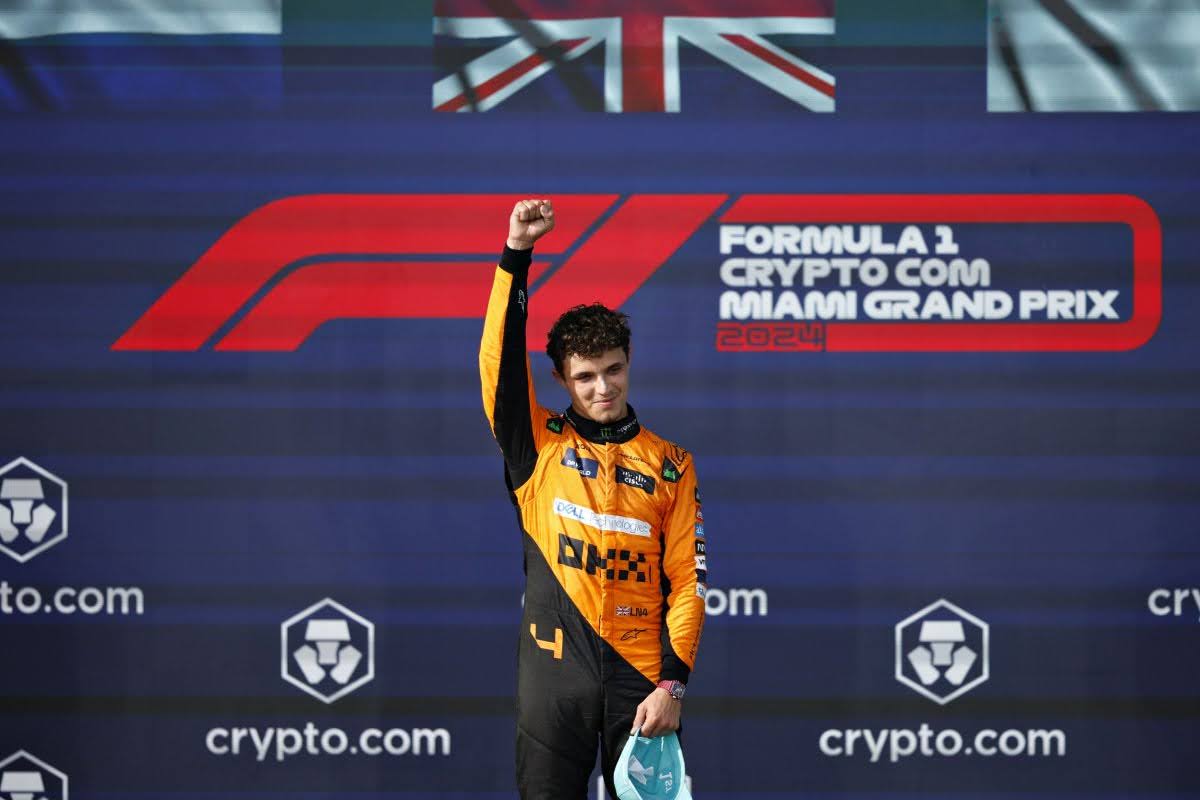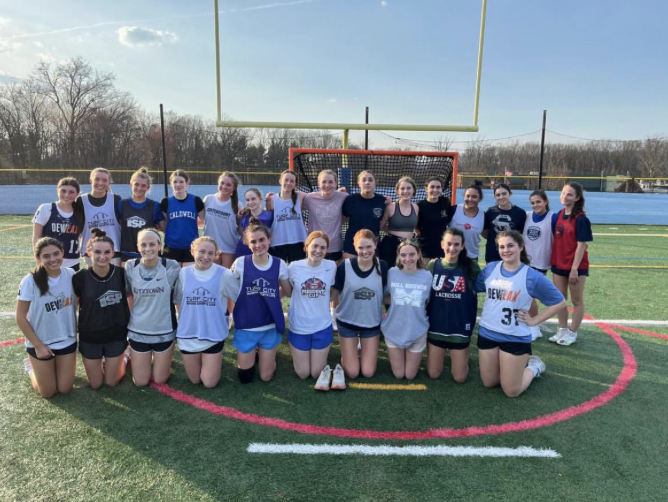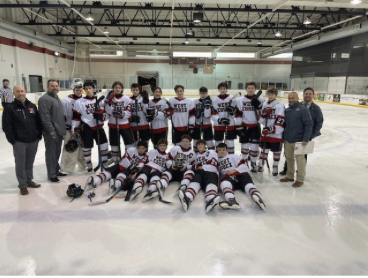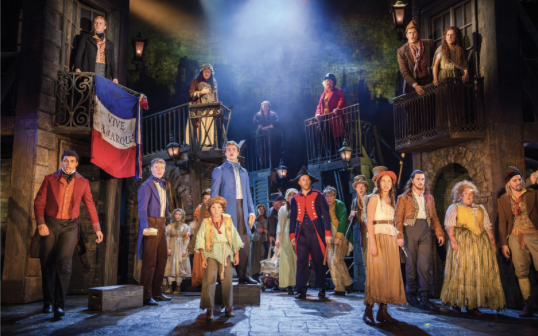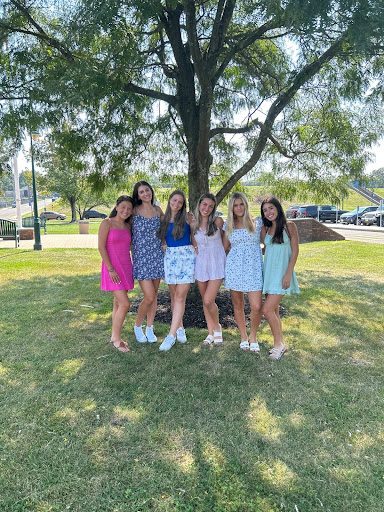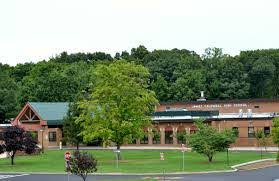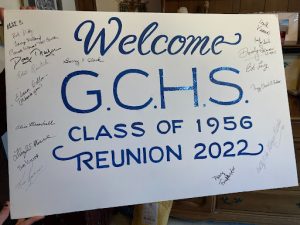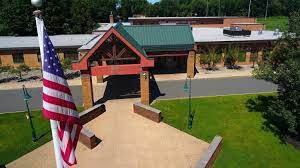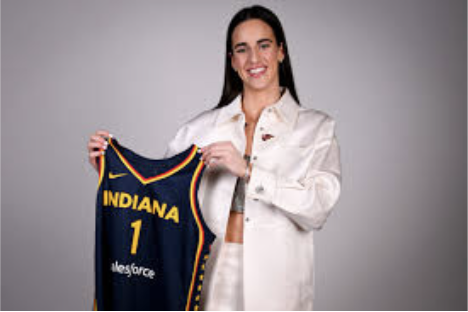SANTA CLARA- Just eight short years ago, Colin Kaepernick was at the height of his football career. The second year QB out of the University of Nevada not only took over as the starter for veteran Alex Smith early in the San Francisco 49ers season, but led the team on a miracle run to the Super Bowl. Widely regarded as a transcendent talent who had an uncanny ability to throw and run the football, Kaepernick was thought to be a staple in the NFL for the foreseeable future.
Fast forward to September of 2016 and everything had changed. Not only had the 49ers gotten significantly worse since coach Jim Harbaugh left to coach the University of Michigan Wolverines in 2014, but Kaepernick was once again at the forefront of national news, but for drastically different reasons. Instead of his high level of play earning him a spot on the front page, it was a bold protest against police brutality and social injustice during the playing of the National Anthem that thrust the Milwaukee native back into the spotlight. Though Kaepernick and his fellow teammates who decided to protest by kneeling with him received a heavy amount of criticism, hate, and death threats, he finished the season on the 49ers roster, starting 11 games.
Unfortunately, 2016 would be his last. Disregarding the fact that he had proven himself to be a starting caliber quarterback in years prior, all 32 NFL teams refused to sign Kaepernick, even those with shoddy situations of their own. Interestingly, over the next four years and continuing through 2020, the narrative regarding Colin Kaepernick has begun to evolve at a rapid pace. Because new events that have shown light on police brutality have occured over the past few months, peaceful protests, similar to those that Kaerpenick and his teammates conducted, have broken out across the world. This has led individuals, communities, and the media to reevaluate their position on nonviolent acts staged around ending police brutality. However, others have stayed true to their original thoughts, believing that kneeling during the playing of the National Anthem is disrespectful to the United States, especially those in the Armed Forces. So, how will history treat Colin Kaepernick? Will he be remembered as a trailblazer for athletes to express their world opinions or will his actions be forgotten with the passing of time?

Coming out of John H. Pitman high school in Turlock, California, Kaepernick was not the most sought after recruit, as he received more attention for his baseball skills than his ability on the gridiron. Listed as a three star player, the adopted pro-style QB committed to play football at the University of Nevada, located in Reno, the state’s capital. Though he started off as a backup at Nevada, by his sophomore year Kaepernick began to light up scoreboards. In addition to becoming just the fifth player in NCAA history to pass for 2,000 yards and rush for 1,000 yards in a single season, he earned the Humanitarian Bowl MVP and was named as the WAC (Western Athletic Conference) offensive player of the year.
Kaepernick had a bit of a down year as a junior, but he still guided the Wolfpack to an 8-5 record and was again named the WAC quarterback of the year. As a senior, Kaepernick went out with a bang. Not only did the lightning quick QB lead Nevada to a 34-31 win over rival Boise State, who had a 24 game winning streak up to that point, but he finished his historic season with a stunning 3,022 passing yards, 1,206 rushing yards, 21 passing touchdowns, and 20 rushing touchdowns. To put the finishing touches on an unmatched career in the desert, the Wolfpack took home a share of the WAC title and Kaepernick earned the WAC co-offensive player of the year. His efforts to improve upon his elite level of play in college resulted in Kaepernick being selected in the second round of the 2011 NFL draft by the San Francisco 49ers.

As a 49er, Kaepernick did not exactly start his career off on a great note. In his rookie season, he backed up the more experienced Alex Smith and only played in three games, starting none of them. The 2012 season began the same way, with the then 25 year old sitting on the bench, waiting for the opportunity to step in as San Francisco’s QB. That moment came in week ten of the season against the St. Louis Rams, when the aforementioned Alex Smith suffered a concussion and Kaepernick came in to relieve the injured Utah alum. The game ended in a tie, with Kaepernick throwing for 117 yards and rushing for 66. By the next week, Smith was still dealing with his concussion and was not cleared to play, resulting in Kaepernick’s first career start. He led San Francisco to a dominating 32-7 win over the Chicago Bears and never looked back. Even though Smith was eventually cleared to play by the 49ers’ team doctors, head coach Jim Harbaugh stuck with the hot hand and kept Kaepernick in as the starter. That proved to be the right decision, as the 49ers would finish the regular season with 11 wins and a playoff berth. Throughout the playoffs, Kaepernick lit up opposing defenses and rode his dynamic play all the way to Super Bowl XLVII. The game resulted in a heartbreaking 34-31 loss for the 49ers, but Kaepernick had proven that he was the 49ers quarterback of the future.

Unfortunately, the 2012 season was the apex of Kaepernick’s playing career in the NFL. Though Kaepernick did put together a solid season, including a 21:8 touchdown to interception ratio, the 49ers were trounced by their division rivals, the Seattle Seahawks, in the NFC Championship game. Over the next couple of years, Kaepernick would remain the 49ers’ starter, but he and the team would slip to mediocrity. In 2014, the team would finish with a measly eight wins and miss the playoffs, while Kaerpnick also suffered a decline in production. 2015 featured San Francisco starting off the season 2-6 before Kaepernick suffered a season ending shoulder injury. Former top pick Blaine Gabbert would replace the injured QB, and the 49ers would drift to a 5-11 record. But, Kaepernick was healthy and ready to have a comeback season in 2016. He and Blaine Gabbert would battle for the starting job throughout the preseason, but the side effects of Kaepernick’s injury initially cost him the job. However, it was Kaepernick’s actions on the bench, not on the field, that earned him multiple weeks worth of nationwide attention.
On August 26th, in a preseason game against the Green Bay Packers, Kaepernick did not stand for the National Anthem, instead sitting on the bench. When asked by the media regarding his actions, Kaepernick stated that he refused to stand because the United States “oppresses black people and people of color.” Though his actions do not garner immediate attention from huge media outlets, the story begins to grow exponentially in the coming days. By the end of the month, multiple former NFL players and the league itself chimed in with a very mixed response. Before the 49ers final preseason game on September 1st, Kaepernick knelt for the National Anthem and pledged one million dollars to organizations that agreed with his beliefs. Though it would be another 11 days before the 49ers would begin the regular season versus the newly relocated Los Angeles Rams, Kaerpnick was at the forefront of the news yet again. Not only had then President Barack Obama released a statement saying that peacefully protesting was Kaepernick’s constitutional right, but NFL commissioner Roger Goodell said that he “[didn’t] necessarily agree with what Kaepernick was doing,” essentially solidifying the NFL’s position on the issue.

On September 11th, the first full day of games for the NFL and the 15th anniversary of the terrorist attacks on the World Trade Center and Pentagon, multiple NFL players took a knee during the National Anthem. A day later, Kaepernick, along with teammate Eric Reid, once again took a knee. Soon, more and more prominent NFL stars, including lockdown cornerback Marucus Peters and shutdown safety Devin McCourty, began to take a knee for the same reasons as Kaepernick. The growing popularity and seriousness of the movement began to divide families and friends at a rapid rate, likely aided by then Republican presidential nominee Donald Trump, who said that players who knelt for the anthem were “sons of bitches” and that he would love for team owners to “get them off the field.”
Kaepernick quickly responded stating that Trump “always says make America great again. Well, America has never been great for people of color”. The ever growing issue over kneeling seemed to die down as the season progressed, even as more teams and players continued to join Kaepernick in protesting and raising awareness for racial inequality, police brutality, and the oppression of people of color. By season’s end, Kaepernick’s protests seemed to have gotten the job done, as more people than ever were having tough conversations centered around the rough and controversial history and current climate of our nation. Be that as it may, Kaepernick and the 49ers did not have a successful season by any means. Eventually, once he was fully rehabbed, Kaepernick regained the starting spot from Blaine Gabbert, but he was only able to muster one win in eleven games as the 49ers starter. As a result of the team’s poor play, a drop off in production, an expensive contract, and potentially the protests he started and propelled into the national spotlight, Kaepernick opted out of his contract just before the 49ers could release him. Though he was just 29 at the time and a more than qualified backup quarterback, no NFL team offered Kaepernick a contract.
For three and a half years, Kaepernick’s name was largely forgotten about, outside of a few tryouts and Nike advertisement campaigns. However, that all changed in June of 2020. Just as the United States was beginning to re-open following a months long quarantine due to the COVID-19 pandemic, Minneapolis native George Floyd died at the hands of police officers on May 25th. Just days after following the incident, a video was released showing that an officer knelt on Floyd’s neck for 8 minutes and 46 seconds, eventually suffocating him. He was pronounced dead at the hospital just an hour later. To make matters worse, Floyd was only accused of using a counterfeit $20 bill, a relatively minor infraction.
As a result, protests condemning police brutality and racism (George Floyd was an African American and the officer that killed him was white) sprung up all across the world, from Los Angeles to London. For the entirety of the summer, people of all colors, genders, and nationalities gathered together to promote an end to systemic racism and police brutality. Compared to four years earlier, the public opinion seemed to be much more supportive of the movement, though many were still fierce opponents of the protests. This caused countless companies to publicly support Black Lives Matter, a movement that goes against racial discrimation and other race based issues. Included in the long list of companies was the NFl, who flipped their opinion from “not agreeing” with the protests to fully supporting and running advertisements in conjunction with Black Lives Matter and its organizers. Additionally, the NFL admitted that they made a mistake in the way they handled player protests four years prior, a blunder that may have cost Kaepernick his job.
This brings up the question of what Colin Kaepernick’s legacy will be. In September of 2016, the answer that the majority of Americans may have had would be that his actions were “unnecessary” and “disrespectful to the flag and American soldiers”. Those opinions remained popular until recent times, as unjustifiable deaths in the African American community have proved that racism still exists in the United States. Kaepernick has himself spoken up on newly formed topics, such as defunding the police, but many Americans’ views regarding his actions may have been altered without any recent commentary. Even more players have knelt throughout the first portion of the 2020 NFL season, and unlike 2016, kneeling is fully condoned by the league. Not only has the NFL’s changed stance on the issue given off the impression that kneeling is necessary, but one of Kaepernick’s biggest adversaries, current president and 2020 Republican presidential nominee Donald Trump, has been losing support in recent polls that pit him against the Democratic nominee, Joe Biden, in not only healing the huge wound in our country torn by racism and hate, but as an overall candidate.
All of these factors stem back to Kaepernick’s actions four years ago and how they will be viewed going forward. Will future generations view him as a trailblazer for athletes advocating against issues that are prevalent in our current world, like many people are now, or will the public view switch once again, with the majority judging him as an unpatriotic and ungrateful person who unnecessarily brings politics into sports? Only time will tell.

